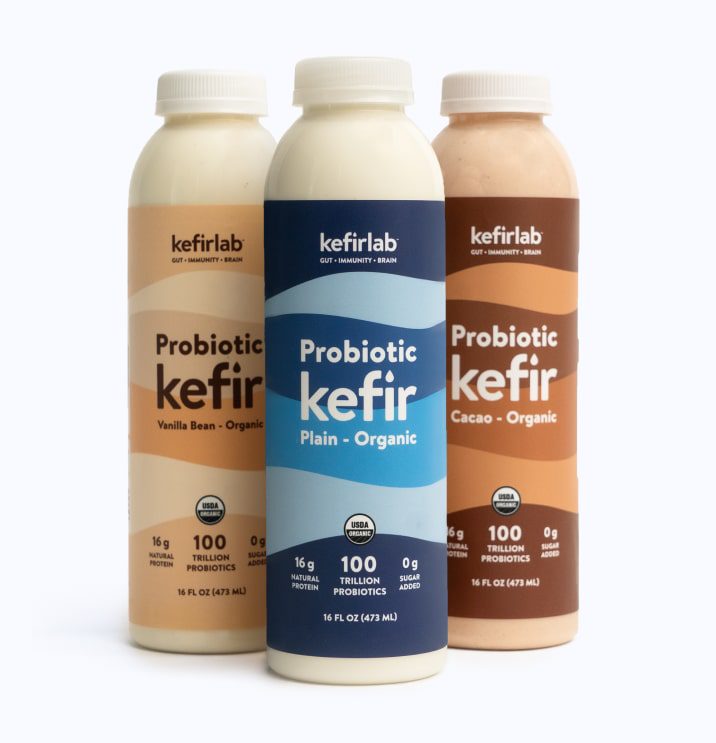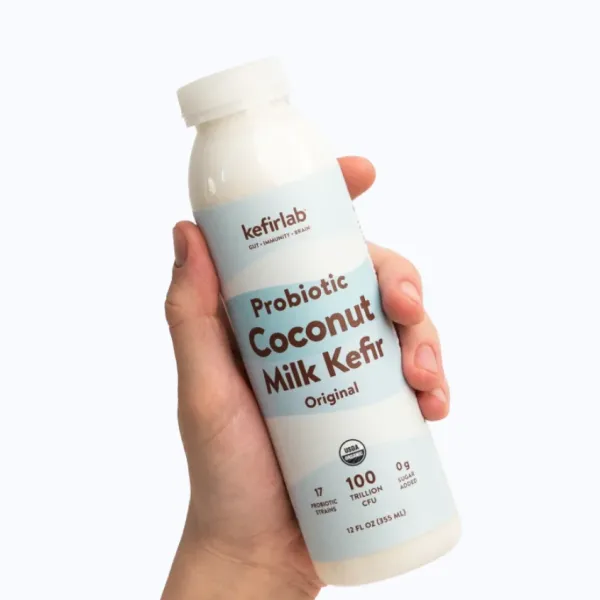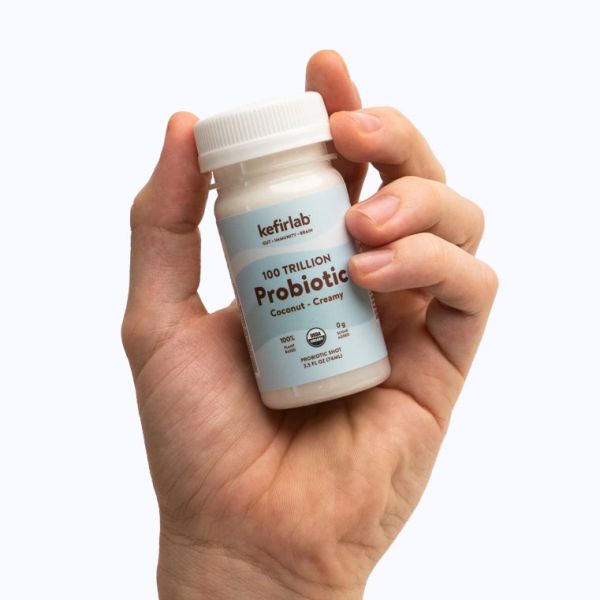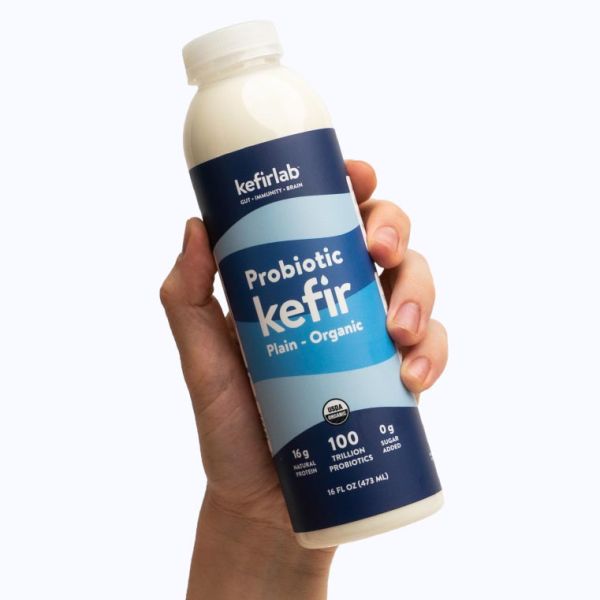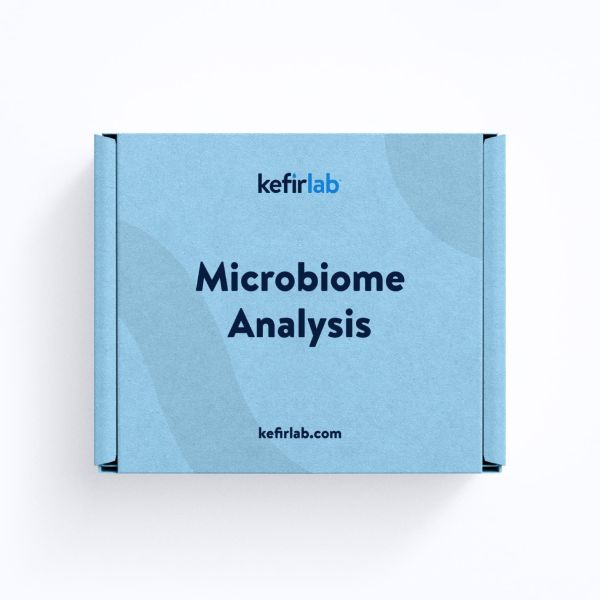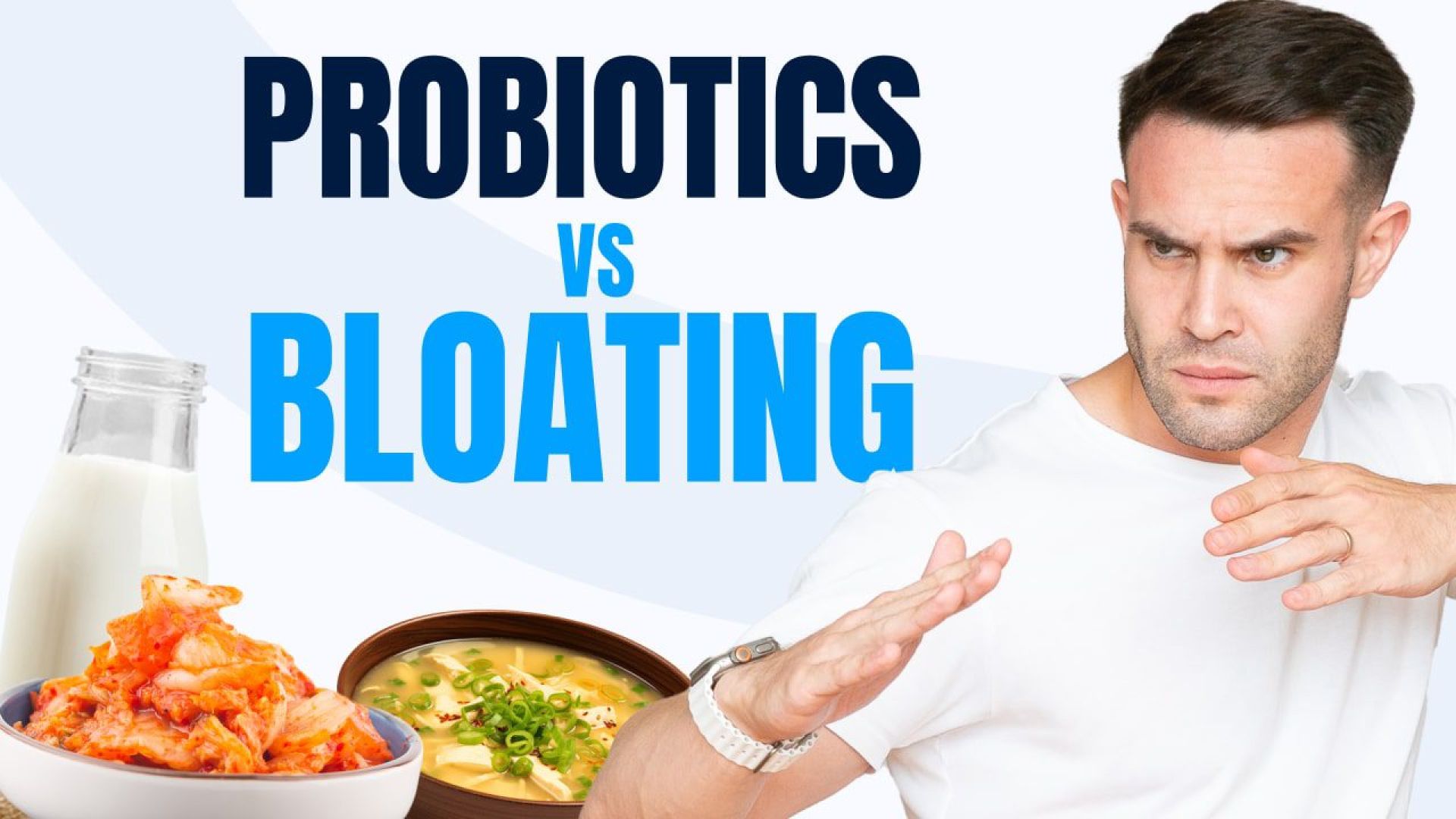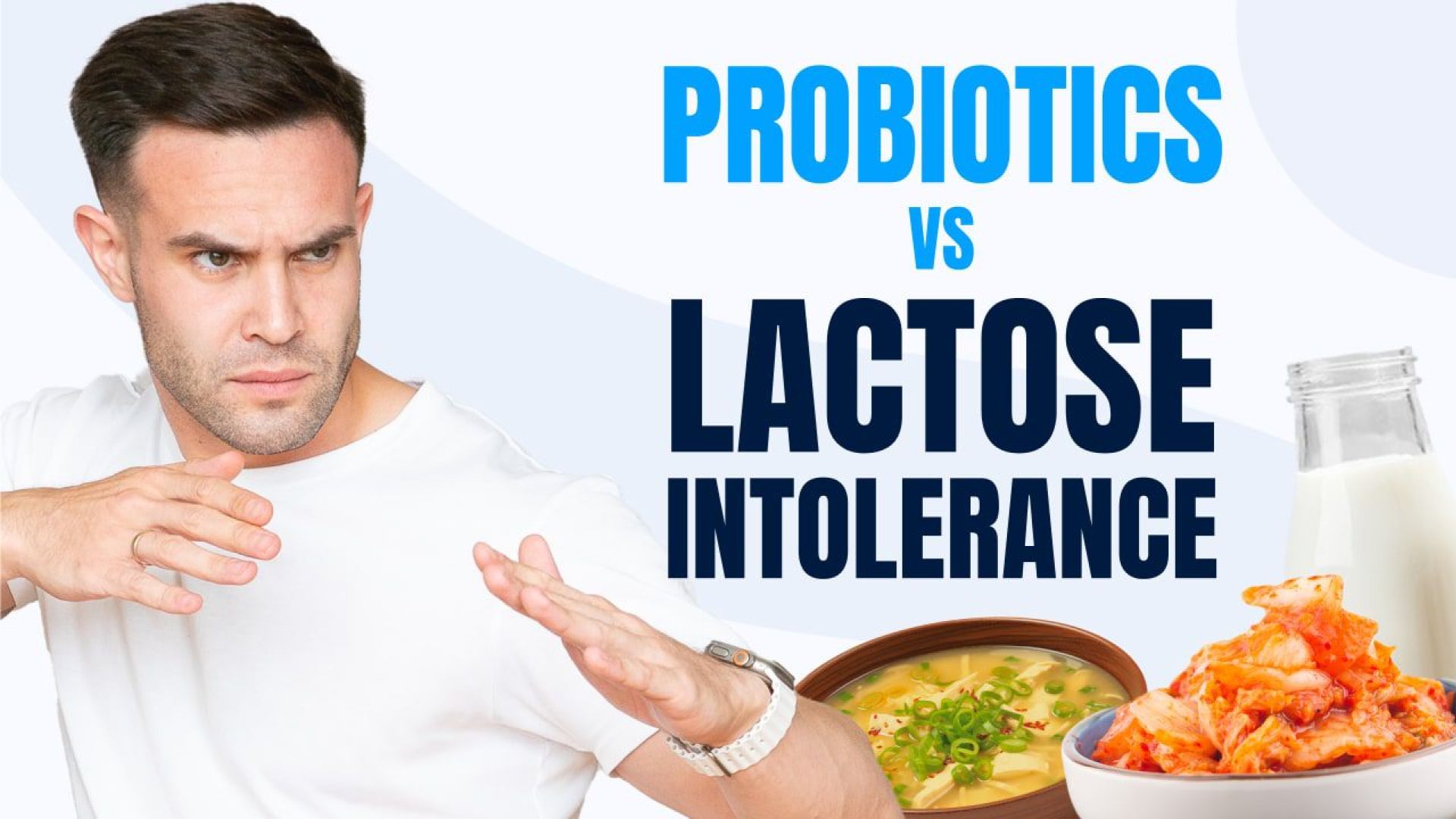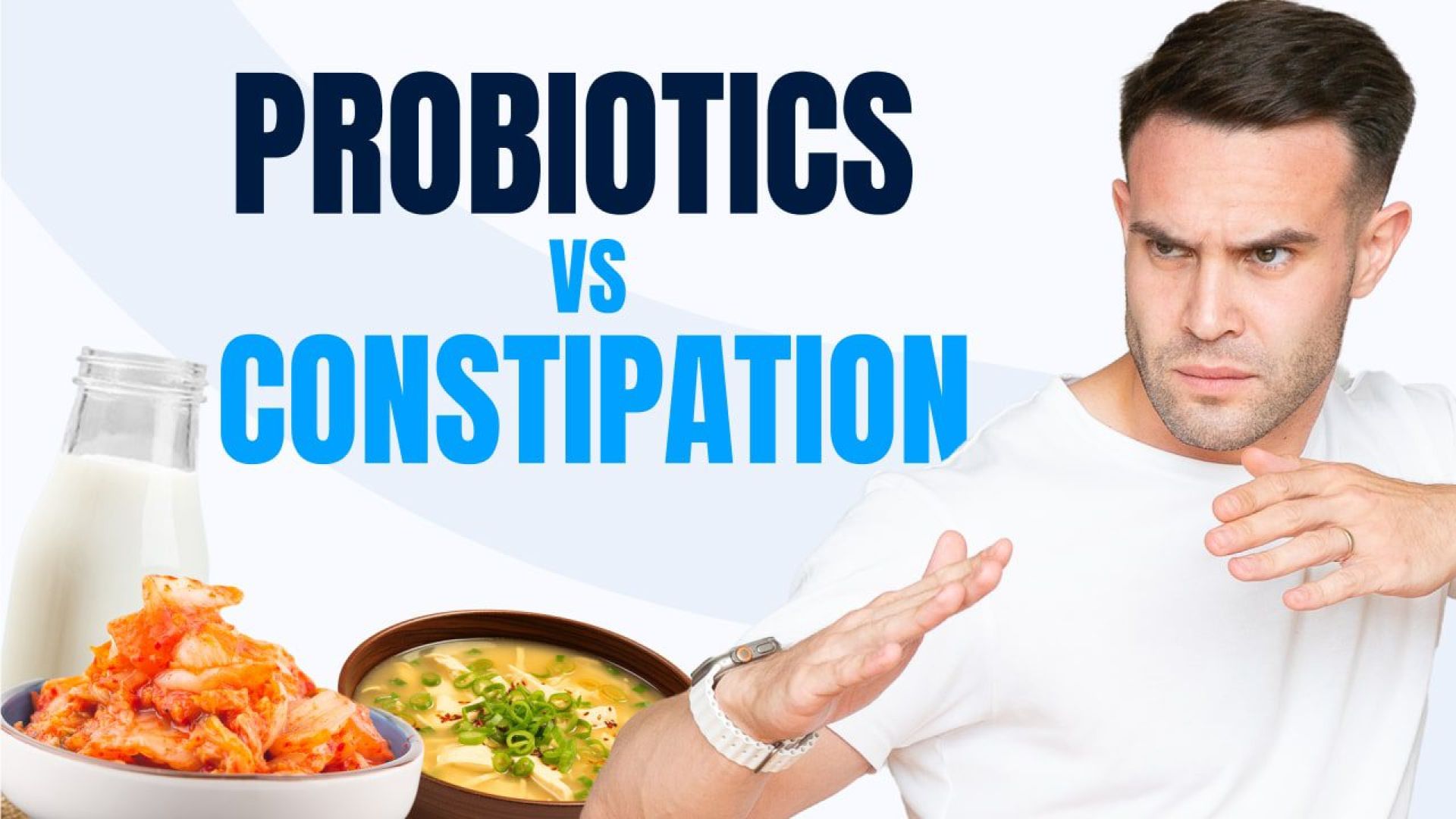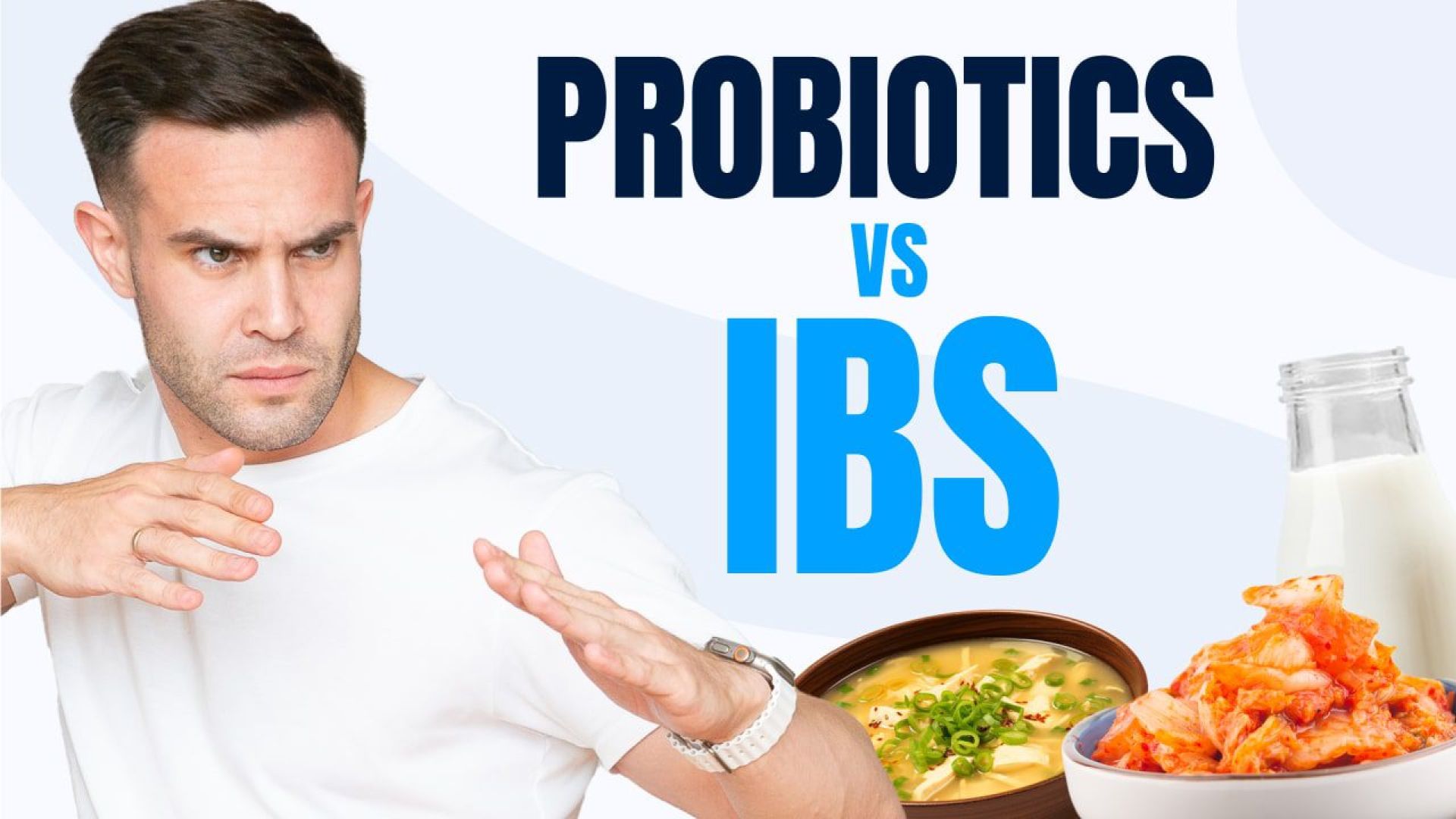Are Probiotics Good For Weight Loss? [A Complete Guide]
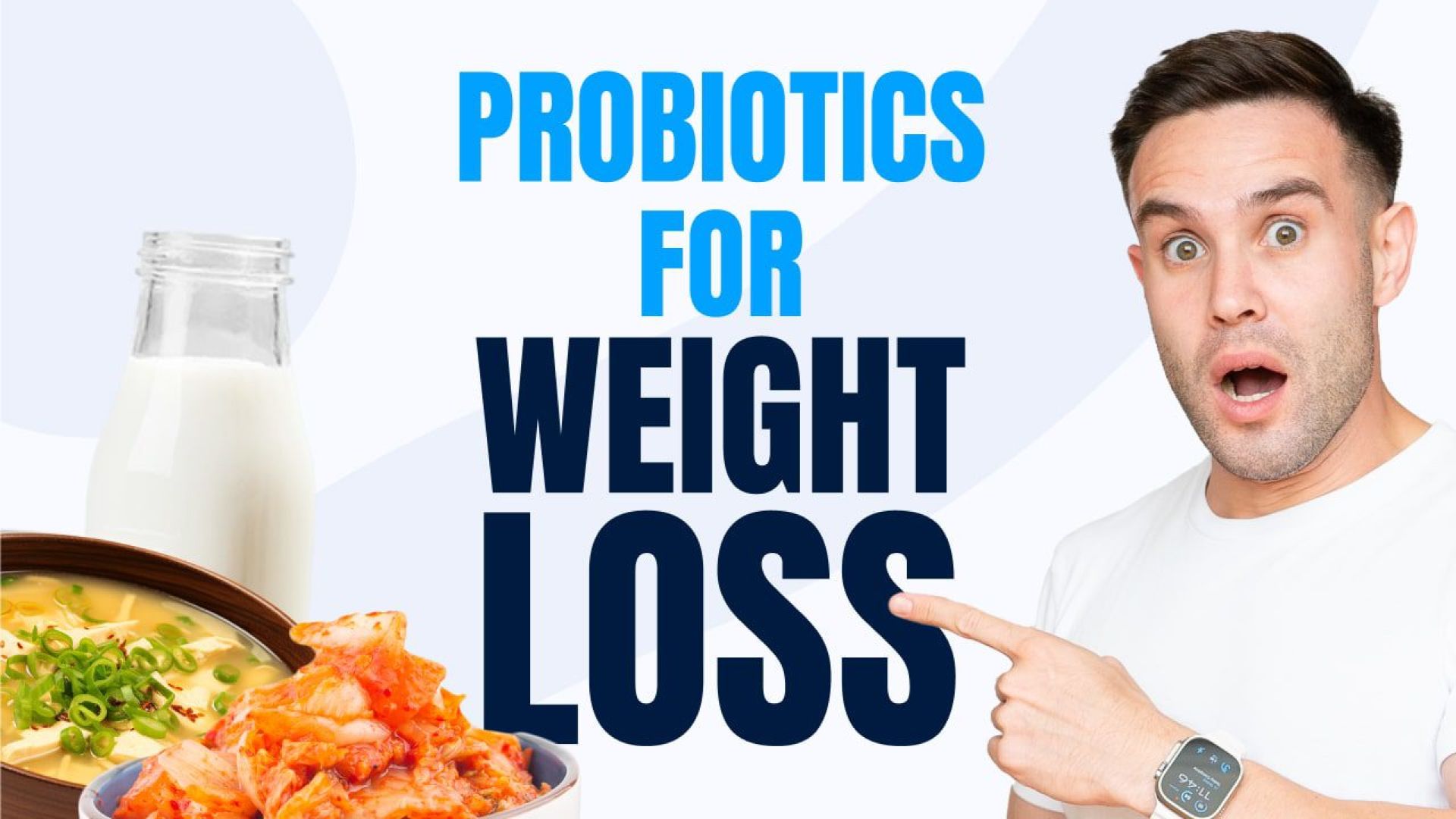
In This Article you will learn…
Probiotics have gained popularity for their numerous health benefits, but can they help with weight loss?
In this comprehensive guide, we’ll explore the connection between probiotics and weight management, how they work, and how to incorporate them into your routine for the best results.
You’ll learn everything you need to know to make an informed decision about using probiotics for weight loss.
Don’t like to read? Watch a video
Understanding Probiotics
What Are Probiotics?
Probiotics are live microorganisms, often called “good” or “friendly” bacteria, that provide health benefits when consumed in adequate amounts.
They naturally exist in your gut and can be found in various foods and supplements.
Probiotics are crucial in maintaining a balanced gut microbiome for overall health.
How Probiotics Work in the Body
Probiotics help restore and maintain a healthy balance of gut bacteria. They enhance the gut’s microbial diversity, compete with harmful bacteria, and support the immune system.
This balance is vital for digestion, nutrient absorption, and protection against pathogens.
A healthy gut microbiome can also influence other aspects of health, including weight management.
The Link Between Gut Health and Weight Management
Importance of Gut Health
Gut health is critical for overall well-being. The gut microbiome, consisting of trillions of bacteria, influences many bodily functions, including digestion, immune response, and mental health.
A healthy gut supports efficient digestion and nutrient absorption, which can directly impact weight management.
Imbalances in gut bacteria have been linked to various health issues, including obesity.
Role of Gut Microbiome in Weight Regulation
The gut microbiome plays a significant role in regulating body weight. It affects how food is metabolized, the storage of fat, and the release of hormones that control hunger and appetite.
Certain bacteria can influence the number of calories absorbed from food.
They may impact insulin sensitivity, a crucial weight management factor.
Research has shown that individuals with obesity often have a different gut microbiome composition compared to those with a healthy weight.
Probiotics and Weight Loss
Mechanisms by Which Probiotics May Aid Weight Loss
Probiotics may help with weight loss through several mechanisms. They can:
- Reduce the absorption of dietary fat, increasing the amount of fat excreted.
- Produce short-chain fatty acids that regulate fat metabolism and reduce fat storage.
- Influence appetite-regulating hormones like ghrelin and peptide YY, helping to reduce hunger and increase feelings of fullness.
- Decrease inflammation, which is often associated with obesity and metabolic disorders.
Research Evidence on Probiotics for Weight Loss
Numerous studies have explored the relationship between probiotics and weight loss.
While results are varied, several strains of probiotics have shown promise in aiding weight management. For instance:
- Lactobacillus gasseri has been linked to reductions in belly fat.
- Bifidobacterium breve has shown potential in preventing weight gain and reducing body fat mass.
- A combination of different probiotic strains has also been studied, with some showing positive effects on weight loss and body composition.
These findings suggest that probiotics can be a valuable addition to a weight loss regimen.
However, more research is needed to understand their impact fully.
Choosing the Right Probiotics for Weight Loss
Effective Probiotic Strains for Weight Loss
When it comes to probiotics for weight loss, not all strains are created equal. Some of the most effective strains include:
- Lactobacillus gasseri: Known for reducing belly fat and body weight.
- Bifidobacterium breve: Shown to prevent weight gain and reduce body fat.
- Lactobacillus rhamnosus: Associated with weight loss and improved body composition.
Incorporating these specific strains can enhance the effectiveness of your weight loss efforts.
Probiotic-Rich Foods vs. Supplements
You can get probiotics from both foods and supplements. Foods like yogurt, kefir, sauerkraut, and kimchi are natural sources of probiotics.
Supplements offer a convenient alternative, often providing higher doses of specific strains.
Both options have benefits; the best choice depends on your lifestyle and dietary preferences.
Kefir Lab’s Probiotic Products
Overview of Kefir Lab’s Products
Kefir Lab offers a range of high-quality probiotic products designed to support gut health and weight management:
- Probiotic Shots: Convenient and potent, these shots are packed with beneficial bacteria.
- Coconut Kefir: A dairy-free option rich in probiotics, suitable for those with lactose intolerance.
Benefits of Kefir Lab’s Products for Weight Loss
Kefir Lab’s probiotic products are formulated to enhance gut health, which is crucial for effective weight management.
Regular consumption can help balance your gut microbiome, support digestion, and potentially aid in reducing body fat.
Incorporating these products into your daily routine can help you harness the power of probiotics to support your weight loss journey.
Practical Tips for Using Probiotics for Weight Loss
How to take probiotics
Consistency: For optimal results, consistency is vital. Make sure to consume probiotics daily. It typically takes 8-12 weeks to observe significant effects, so staying consistent is crucial.
Choosing the Right Probiotic: Select supplements, like KefirLab’s Probiotic Shot that contain effective strains like Lactobacillus gasseri and Bifidobacterium breve.
Follow the recommended dosage on the product label. Typically, one serving of probiotic-rich food or a daily supplement is sufficient. Taking probiotics with meals can enhance their survival through the digestive tract and improve efficacy.
Combine Probiotics with a Healthy Diet and Exercise
Probiotics are most effective when combined with a balanced diet and regular exercise.
Focus on a diet rich in fiber, which supports probiotic activity. Pair your probiotic intake with fiber-rich foods to nourish beneficial bacteria and amplify the weight loss effects.
Incorporate plenty of fruits, vegetables, whole grains, and lean proteins.
Regular physical activity further enhances gut health and supports weight loss.
Monitor Progress and Adjust
Keep track of your weight loss progress and how you feel. It may take several weeks to notice changes.
If you don’t see the desired results, consider adjusting your probiotic strain or dosage. Consult with a healthcare professional for personalized advice.
FAQ about probiotics and weight loss
What Are Probiotics?
Probiotics are live microorganisms that provide health benefits when consumed in adequate amounts.
They are often called “good” or “friendly” bacteria and are crucial for maintaining a balanced gut microbiome.
Probiotics can be found in fermented foods like yogurt, kefir, and sauerkraut, as well as in dietary supplements.
How Do Probiotics Help With Weight Loss?
Probiotics may aid weight loss by enhancing the gut microbiome, influencing metabolism, fat absorption, and hormone regulation.
Certain probiotic strains can reduce inflammation, improve insulin sensitivity, and decrease the absorption of dietary fats, contributing to weight management.
Which Probiotic Strains Are Best for Weight Loss?
Effective probiotic strains for weight loss include Lactobacillus gasseri, which helps reduce belly fat, and Bifidobacterium breve, known for preventing weight gain and reducing body fat.
Lactobacillus rhamnosus has also been associated with improved body composition and weight loss.
Can Probiotics Reduce Belly Fat?
Certain probiotic strains like Lactobacillus gasseri have been shown to help reduce belly fat.
These probiotics can influence fat storage and metabolism, helping to target abdominal fat, which is often more stubborn and associated with higher health risks.
How Long Does It Take for Probiotics to Work for Weight Loss?
The effects of probiotics on weight loss can vary, but noticeable changes may take several weeks to a few months.
Consistency is essential; combining probiotics with a healthy diet and regular exercise can enhance results.
Should I take probiotics with food or have them on an empty stomach?
Probiotics are generally more effective when taken with food.
The presence of food helps protect the probiotics as they pass through the digestive tract, increasing their chances of reaching the gut alive.
Can Probiotics Help With Bloating and Digestion?
Yes, probiotics can improve digestion and reduce bloating by enhancing gut health.
They help balance the gut microbiome, support efficient digestion, and reduce gas production, leading to less bloating and discomfort.
Are There Any Side Effects of Taking Probiotics?
Most people tolerate probiotics well, but some may initially experience mild side effects like gas, bloating, or an upset stomach.
These symptoms usually subside as the body adjusts.
If you experience severe or persistent side effects, consult a healthcare professional.
Can I Take Probiotics While on a Weight Loss Diet?
Yes, probiotics can complement a weight-loss diet.
They support gut health, which is essential for efficient digestion and metabolism.
Including probiotic-rich foods or supplements can enhance your weight loss efforts.
How Do Probiotics Support a Healthy Metabolism?
Probiotics support a healthy metabolism by influencing the gut microbiome, crucial in nutrient absorption, energy regulation, and fat storage.
They help improve insulin sensitivity and reduce inflammation, contributing to a more efficient metabolism.
What Foods Are Rich in Probiotics?
Foods rich in probiotics include yogurt, kefir, sauerkraut, kimchi, miso, tempeh, and certain cheeses.
These fermented foods naturally contain beneficial bacteria that support gut health.
Can I Get Enough Probiotics From Food Alone?
While it’s possible to get probiotics from food alone, supplements can provide higher doses and specific strains that may be more effective for certain health goals, including weight loss.
Combining both food sources and supplements can maximize benefits.
Do I Need a Prescription for Probiotics?
No, probiotics are available over the counter as dietary supplements and in various foods.
However, it’s always a good idea to consult a healthcare professional before starting any new supplement, especially if you have underlying health conditions or are taking other medications.
How Can I Choose the Right Probiotic Supplement?
When choosing a probiotic supplement, look for one that contains specific strains known for weight loss, such as Lactobacillus gasseri or Bifidobacterium breve.
Ensure it has a high CFU (colony-forming units) count, is third-party tested for quality, and has positive reviews.
Can Children Take Probiotics for Weight Loss?
Children can take probiotics, but weight loss should be approached carefully and under the guidance of a healthcare professional.
For children, it is essential to focus on overall health and balanced nutrition rather than weight loss alone.
Are There Any Foods or Supplements to Avoid When Taking Probiotics?
It’s generally safe to consume various foods and supplements with probiotics.
However, avoiding excessive sugar and processed foods is best, as they can negatively impact gut health.
Always check with a healthcare provider if you take other supplements or medications.
Can Probiotics Help With Weight Maintenance After Losing Weight?
Yes, probiotics can help maintain weight loss by supporting a healthy gut microbiome, which is crucial for ongoing metabolic health.
Consistent use of probiotics can aid digestion, nutrient absorption, and maintaining a balanced gut, contributing to long-term weight management.
Do Probiotics Work the Same for Everyone?
Probiotics can have different effects depending on an individual’s unique gut microbiome, diet, and overall health.
While many people experience benefits, results can vary. It’s essential to find the right strains and dosage that work for you and to be patient with the process.
Conclusion
Probiotics have shown promising potential in supporting weight loss, primarily by enhancing gut health and influencing metabolic processes.
While incorporating probiotics into your diet can be beneficial, they are most effective when combined with a balanced diet and regular exercise.
Consistency and the right probiotic strains are crucial in achieving the desired results.
Key Takeaways
- Probiotics can support weight loss by improving gut health and influencing metabolism.
- Certain strains like Lactobacillus gasseri and Bifidobacterium breve are particularly effective.
- Combining probiotics with a healthy diet and regular exercise enhances their benefits.
Visit Health Lab to learn more about gut health and weight loss. Check out our range of probiotic products at Kefir Lab to support your journey towards a healthier you.
Works Cited and Relevant Studies
- Arora, T., & Sharma, R. (2011). Fermented foods: Past, present, and future. African Journal of Biotechnology, 10(66), 14788-14804.
- Khanna, S., & Tosh, P. K. (2014). A clinician’s primer on the role of the microbiome in human health and disease. Mayo Clinic Proceedings, 89(1), 107-114.
- Koboziev, I., Webb, C. R., Furr, K. L., & Grisham, M. B. (2014). Role of the enteric microbiota in intestinal homeostasis and inflammation. Free Radical Biology and Medicine, 68, 122-133.
- Liu, R., Hong, J., Xu, X., Feng, Q., Zhang, D., Gu, Y., … & Zhao, X. (2017). Gut microbiome and serum metabolome alterations in obesity and after weight-loss intervention. Nature Medicine, 23(7), 859-868.
- Million, M., Angelakis, E., Paul, M., Armougom, F., Leibovici, L., & Raoult, D. (2012). Comparative meta-analysis of the effect of Lactobacillus species on weight gain in humans and animals. Microbial Pathogenesis, 53(2), 100-108.
- Tremaroli, V., & Bäckhed, F. (2012). Functional interactions between the gut microbiota and host metabolism. Nature, 489(7415), 242-249.
Join Kefir Club
Like our probiotics, our emails are clean and good for you. Spam Free. Unsubscribe anytime.
